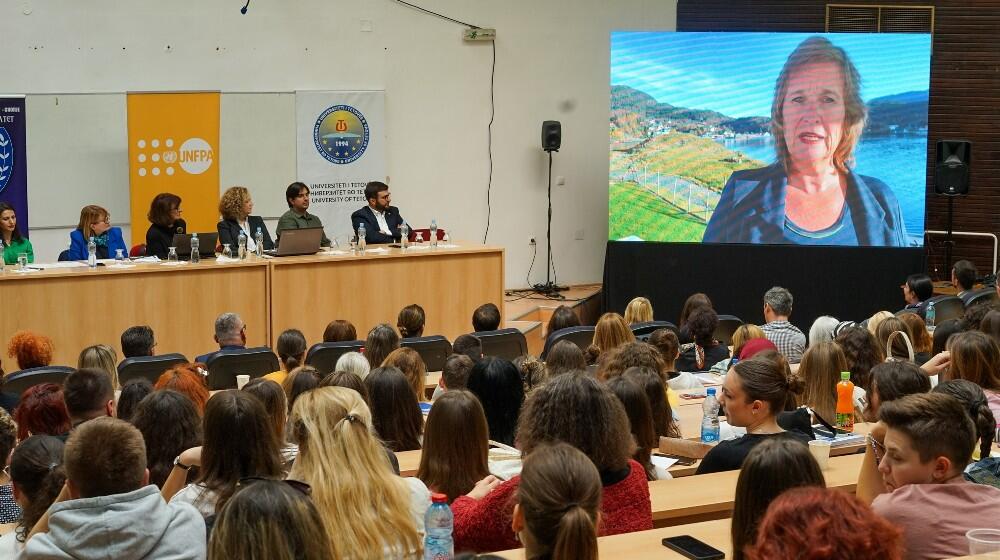Skopje, October 26, 2023 - The trend of declining mental health among adolescent girls, especially among 15-year-olds, is alarming, as indicated by the conclusions of the international HBSC study - Health Behavior in School-aged Children (11-15 years old) in the Republic of North Macedonia. The research was conducted in 2022, with the support of UNFPA North Macedonia.
The national findings were presented today at the Faculty of Philosophy in Skopje, in the presence of numerous representatives from national institutions and students, with the support of Elizabeta Gjorgievska, the spouse of the President of the Republic of North Macedonia.
The study, conducted by the Center for Psychosocial and Crisis Action - Malinska, in partnership with the Faculty of Philosophy and the University of Tetovo, points out that many questions about how children and young people can be healthier, safer and more involved in the family, school, and community remain unanswered.
The findings are alarming. A staggering 57% of 15-year-old girls in our country have reported frequent discomfort almost every day in the last six months. 6 out of 10 girls aged 15 have experienced psychosomatic complaints such as stomachaches, headaches, agitation, irritability, problems with sleep and concentration multiple times a week in the last six months.
Life satisfaction has been decreasing among girls aged 11 to 15 much faster than boys. The trend over the last eight years, from 2014 to 2022, shows the same direction in inter-gender and inter-age differences, with high similarities between 2014 and 2022, precisely on mental health indicators. This indicates a high sensitivity of children to developments in society and the conditions in which they live, regardless of whether it's a social, political, or health crisis and community uncertainty.
Poverty and traditional culture keep children at the bottom of the power hierarchy, hindering them from exercising their rights, while gender inequality has a significant impact on the overall well-being of children and young people, as indicated by the conclusions.


